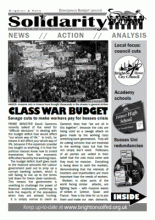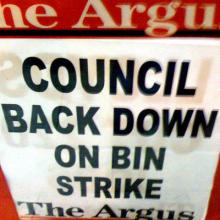Newsletter: emergency budget special
A special edition of ‘Brighton & Hove Solidarity’ – the bulletin of Brighton Solidarity Federation is now available to download, to coincide with the announcement of the emergency austerity budget today. You can download a pdf here. Contents includes: Class war budget, strikes off and redundancies on at Sussex Uni, a local teacher’s view on academy schools, local council cuts and an article on the hidden side of the World Cup – workers’ exploitation and resistance.

